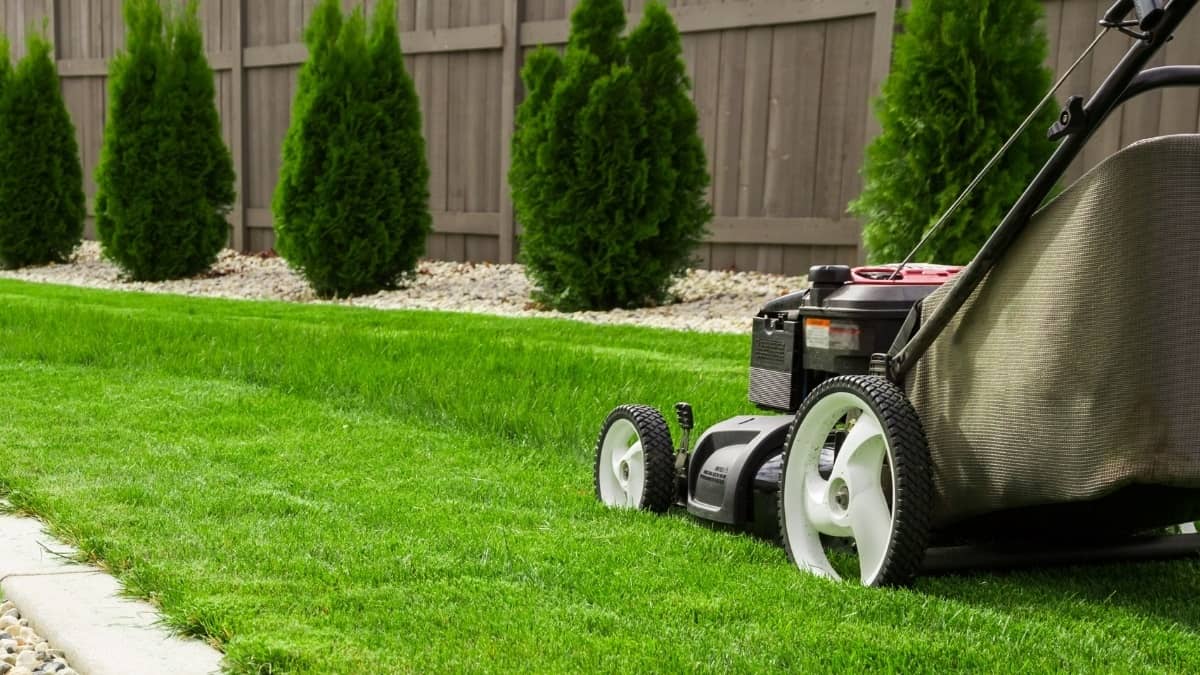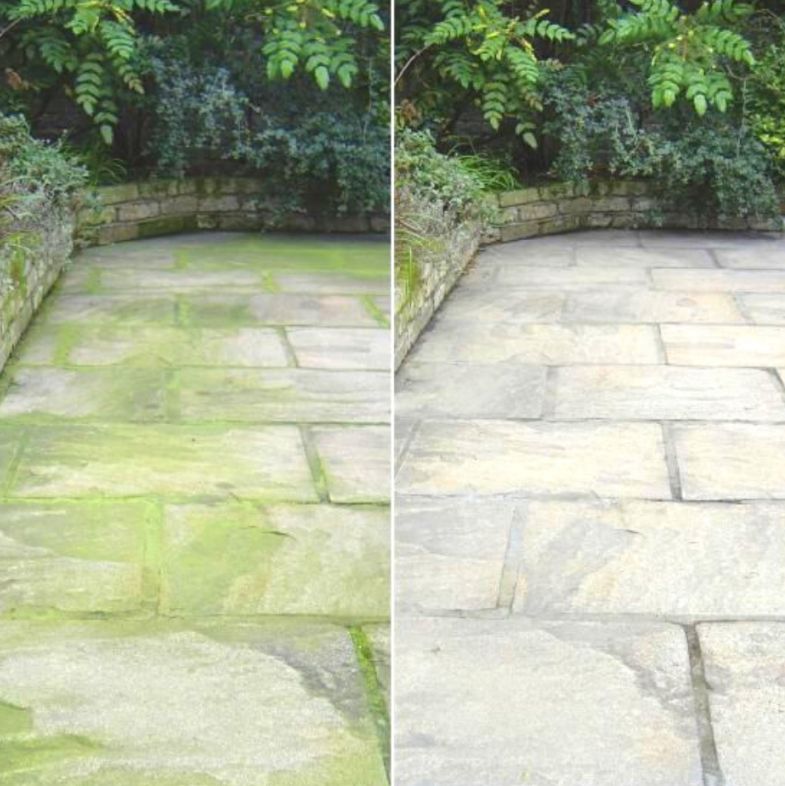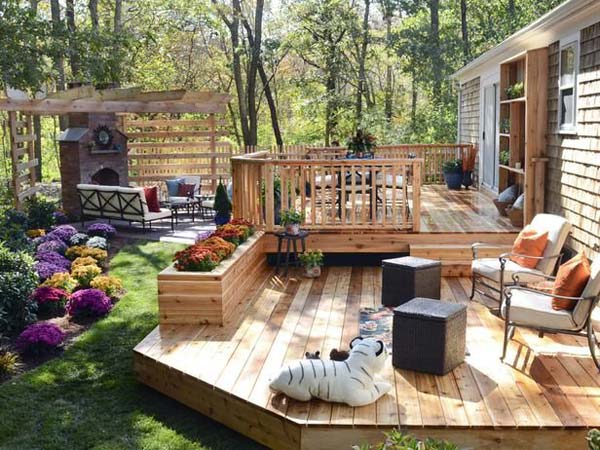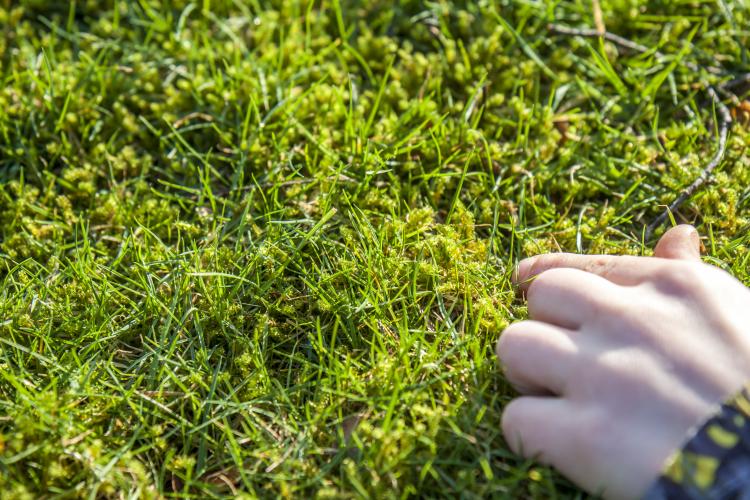How to Get Rid of Moss & Algae.
It may seem easier to take care of patio and decking areas rather than planting or preparing the soil. However, that seem to be myth! A gardener’s work is never quite done and one of the main issues with these types of areas is the mould and algae that can grow in there, especially in places like Ireland.
It makes a huge impact in the garden when you remove moss, algae, and mould from your outdoor space. No matter the proportion of your garden, when you remove these, the place looks much neater and enjoyable.
We are moving closer to springtime and the weather will soon get warmer. It’s that time of the year to start preparing your garden and tidying your outdoor space, so you can spend the most expect days of the year enjoying the comfort of your own garden.
Not only does it not look great, but from a practical point of view it is important for the safety of your home. The moss and algae can make these surfaces quite slippery if not taken care.
Why do mould and algae grow on patios and decking
Moss and algae flourish in damp and shady areas and if you live in Ireland, you know that these two things are quite common in here during the cold season. The reason for that is they need abundance of water to grow, and water doesn’t evaporate as quickly from areas that don’t get enough sun. They also require air and bacteria, which are common in outdoor areas.
How can you get rid of it
Some people just scrub the surfaces with bleach, however it’s not the most efficient thing to, and it is not good for the environment, the smell is quite strong, it can be bad if you have pets or children around, and it can damage the area.
It is ideal if you use something that is specifically developed for this purpose. Most of the patio and decking cleaners will not damage these surfaces and they will be effective on destroying the undesirable mould and green algae that is around.
How do you stop algae from coming back
One of the big frustrations with gardening is how quickly everything needs doing again after all your hard work. However, on our website you can find a selection of green removers, path and patio cleaner and week killers. Most of the products we sell are long lasting and can prevent it to reaper for up six months.
Regarding the environment, gardeners now a days are more conscious about the damage that chemicals can cause. In Lenehans we have organic products that have no bleach or acids in their formula, are safe around pets and biodegradable.
Moss Killer and Lawncare
Lawn moss can form dense mats that “steal” water and nutrients from the grass, this will make lawn irregular, weak and spongy as you walk on it. These plants can easily spread when damp and shady conditions are present.
If your moss problem is mild, possibly you can sort it out by scarifying it using a rake, and then improve the health of the lawn by applying good lawncare products to prevent the moss from quickly coming back. On the other hand, if you have a serious problem with moss, getting rid of it may involve using a chemical killer, scarifying and lawncare products.
Chemical moss killers containing ferrous sulphate (also called sulphate of iron) are the most effective method of ending moss in lawns. It is possible to find some chemical moss killers that also include a fertiliser in their formula, which can help lawns where the grass is weak. Chemical moss killers are typically applied in autumn or spring when the weather is cool and wet, so that lawn seed sown afterwards to cover bare areas is most likely to germinate.
For gardeners who prefer not to use synthetic chemicals, organic moss killers are also available. These don’t contain ferrous sulphate, using bacteria instead to break down the moss. A great advantage of organic moss killers is that since the bacteria effectively ‘digest’ the moss in situ, it doesn’t go black and needs no raking out which can save a Gardner a lot of time. Organic moss killers need a temperature above 15ºC (59ºF) to work and can be applied from late spring to autumn.
When applying moss killer, you should pay attention to following factors:
- Moss killer can be applied either by hand or by using a manual spreader that can be pushed over the lawn. Because chemical moss killers affect soil acidity levels, you must apply it evenly across the whole lawn, rather than only in problematic areas, otherwise the lawn may grow back patchy and discoloured.
- Always read the manufacturer’s instructions usually at the back of the product before applying moss killer. It is very important that you follow the recommendations correctly and use only at the concentrations specified, as applying too much moss killer is likely to damage or even kill the grass.
- Moss killer should be applied when it’s not raining, however some products may require watering to be activated, so read the manufacturer’s instructions.
Prevention is always a good way to reduce the problem with moss. Here are some things you should keep an eye on:
- Poor drainage
- Shade (Thin out over-hanging trees)
- Lack of fertiliser (keep your lawn in a healthy condition, feed your lawn once a month).
- Grass cut too short
- Heavy foot traffic
How to revitalize your lawn

1. Aerate the lawn in autumn by making small holes in the soil at regular intervals. For small gardens, you can do this using a garden fork, pushing it in as far as possible and then removing it.
2. Re-seed sparse or bare patches of lawn. Shady areas of your lawn are always more likely to moss proliferation, so for these areas, use grass seed mixes especially made for shade areas.
3. After aerating and re-seeding the lawn, brush in a lawn top dressing.
4. When mowing, take care not to cut the grass too short, as this will stress the grass, making it weak and propitious to moss proliferation.
Lenehans Has It:
Lenehans stock a wide range of Lawncare Products, Green Removers, path, patio and decking cleaners. Our Products are in stock and available for next day delivery nationwide.
View it here.
Resources:
https://www.lovethegarden.com/uk-en/article/control-and-prevent-lawn-moss
https://www.prokleen.co.uk/blog/how-to-stop-green-mould-and-algae-from-growing-on-your-patio






